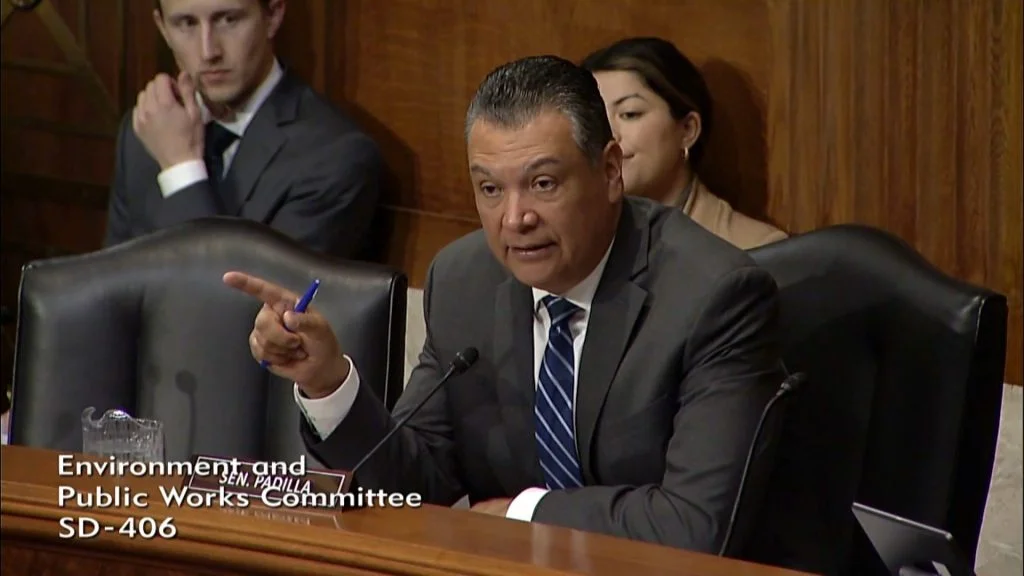Padilla Presses Administration Officials on Urgent Infrastructure Repairs to Address Tijuana River Sewage Crisis

WASHINGTON, D.C. — Today, U.S. Senator Alex Padilla (D-Calif.), Chair of the Senate Environment and Public Works (EPW) Subcommittee on Fisheries, Water, and Wildlife, questioned witnesses on the Tijuana River pollution crisis during an EPW hearing on the Water Resources Development Act (WRDA) of 2024. Padilla called on Michael C. Connor, Assistant Secretary of the Army for Civil Works, and Lieutenant General Scott A. Spellmon of the U.S. Army Corps of Engineers to work with other federal agencies to urgently address the ongoing public health, national security, and environmental crises in Southern California coastal communities.
Padilla emphasized that in just the last five years, more than 100 billion gallons of toxic sewage, garbage, and other pollution have flowed over the United States-Mexico border, forcing mass beach closures and leading to hazardous bacteria infiltrating local waterways and becoming airborne. He added that the Tijuana River pollution crisis has disproportionately harmed underserved communities along San Diego’s southern border for decades while military personnel, border patrol agents, and the local environment and economy suffer harmful impacts from waterborne and airborne transboundary sewage flows.
Padilla pressed Secretary Connor and General Spellmon on their involvement in efforts to build the necessary infrastructure to solve this crisis and called on them to work collaboratively to address it.
“It’s not just health impacts for surfers and tourists — we’re talking Border Patrol personnel, military personnel that [are] in training that become significantly ill because of the conditions of the water. And it’s something that we can absolutely do something about,” said Senator Padilla. “I’m just pleading with you all to work together, work with me, and work with others to address this situation as quickly as possible.”
Secretary Connor expressed support for a collaborative approach across agencies, and General Spellmon said the Army Corps is ready to provide further technical support in addition to the advice their South Pacific Division gave to the International Boundary and Water Commission, but both said their knowledge was limited on the subject. Padilla pressed Connor and Spellmon on the urgency of the situation, not only for disadvantaged border communities, but also for our national security, and he secured their commitment to work collaboratively to address this long-standing issue.
During the hearing, Padilla also referenced his work with his House colleagues to include new authorization in WRDA 2024 to leverage the Corps’ environmental infrastructure and ecosystem expertise to mitigate pollution in the disadvantaged communities in the Tijuana watershed.
Senator Padilla has prioritized addressing the Tijuana River pollution crisis since he first came to the Senate. In June, he traveled to the U.S. International Boundary and Water Commission Wastewater Treatment Plant near the U.S.-Mexico border in San Diego. Following Tropical Storm Hilary, Padilla and the late Senator Dianne Feinstein called on Senate leadership to include $310 million in the emergency supplemental bill to repair infrastructure needed to treat the wastewater flowing across the border with Mexico through the Tijuana River, which has closed local beaches for more than 800 days in a row. The Senators also successfully secured language in the FY 2023 appropriations package to eliminate red tape and allow the EPA to deliver $300 million previously secured in the U.S.-Mexico-Canada Agreement to the International Boundary and Water Commission for water infrastructure projects.
###